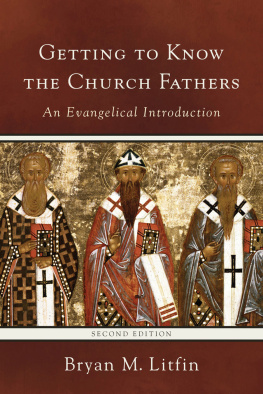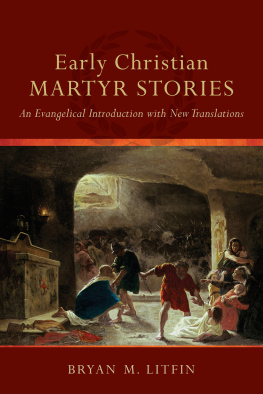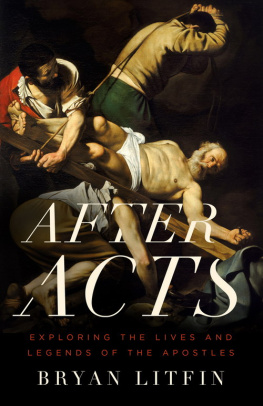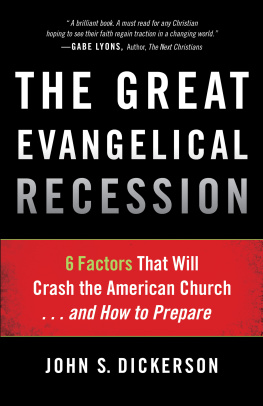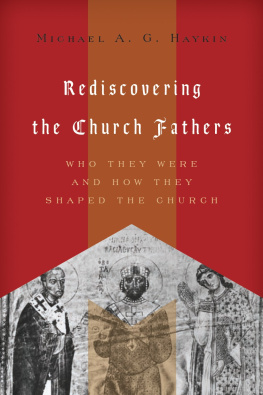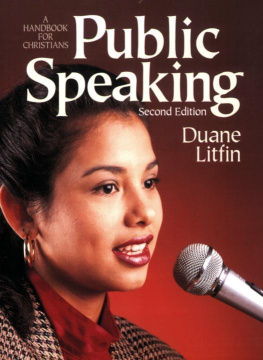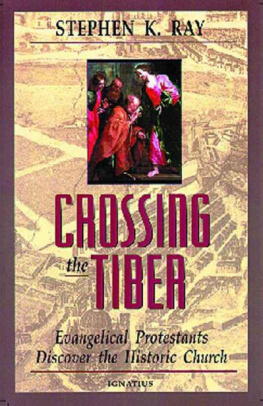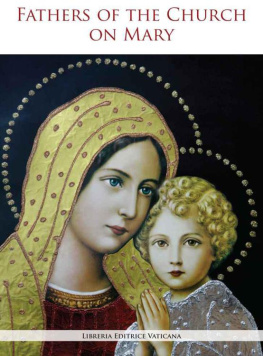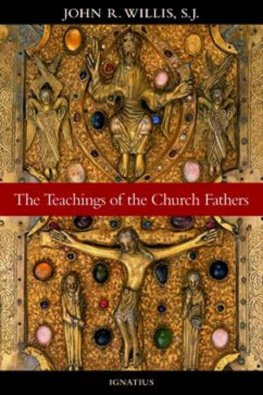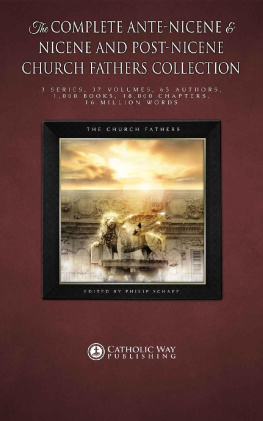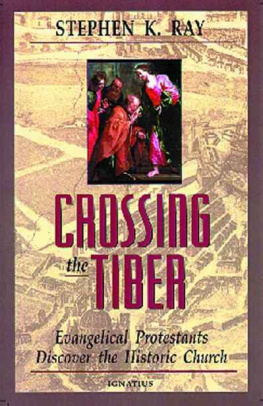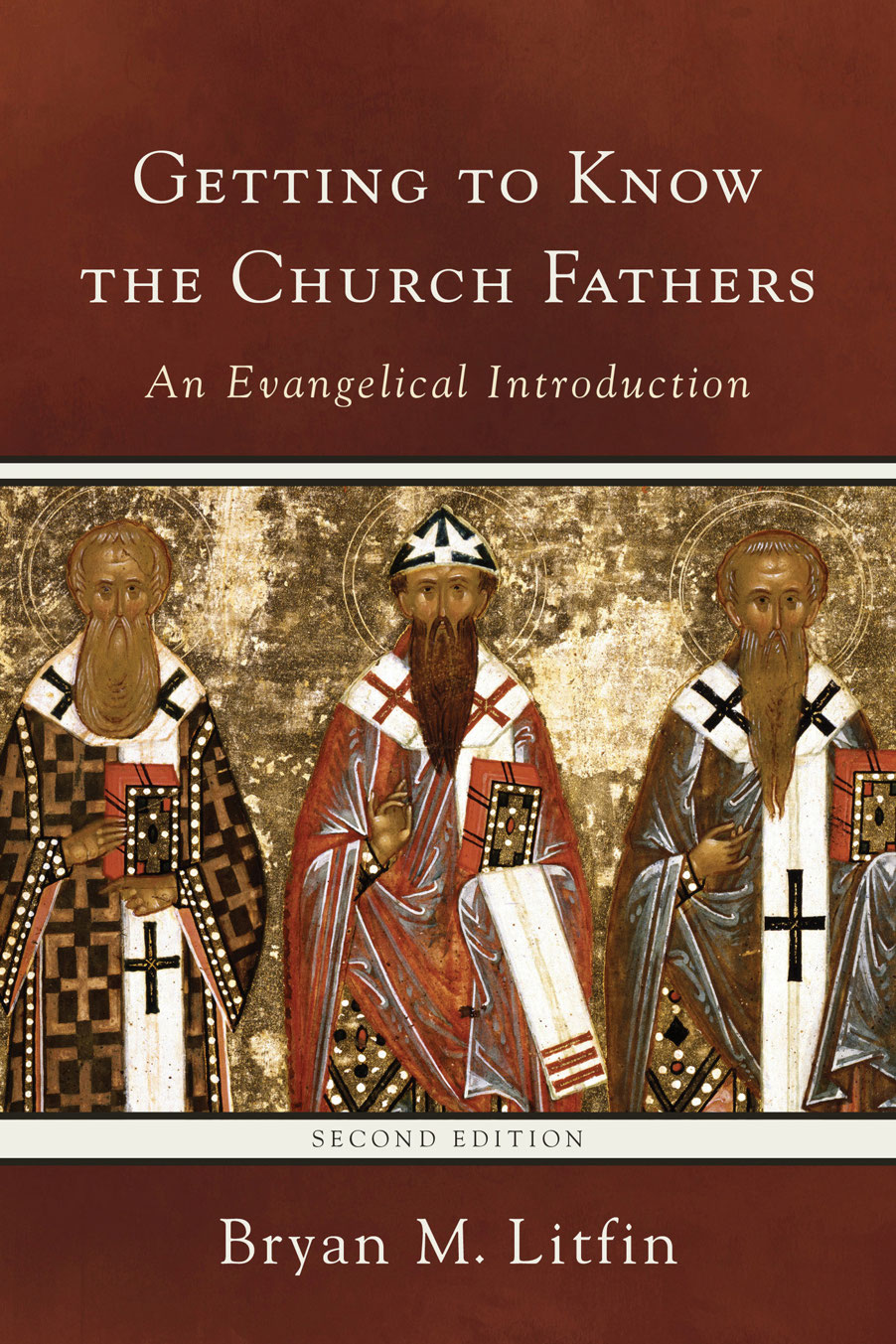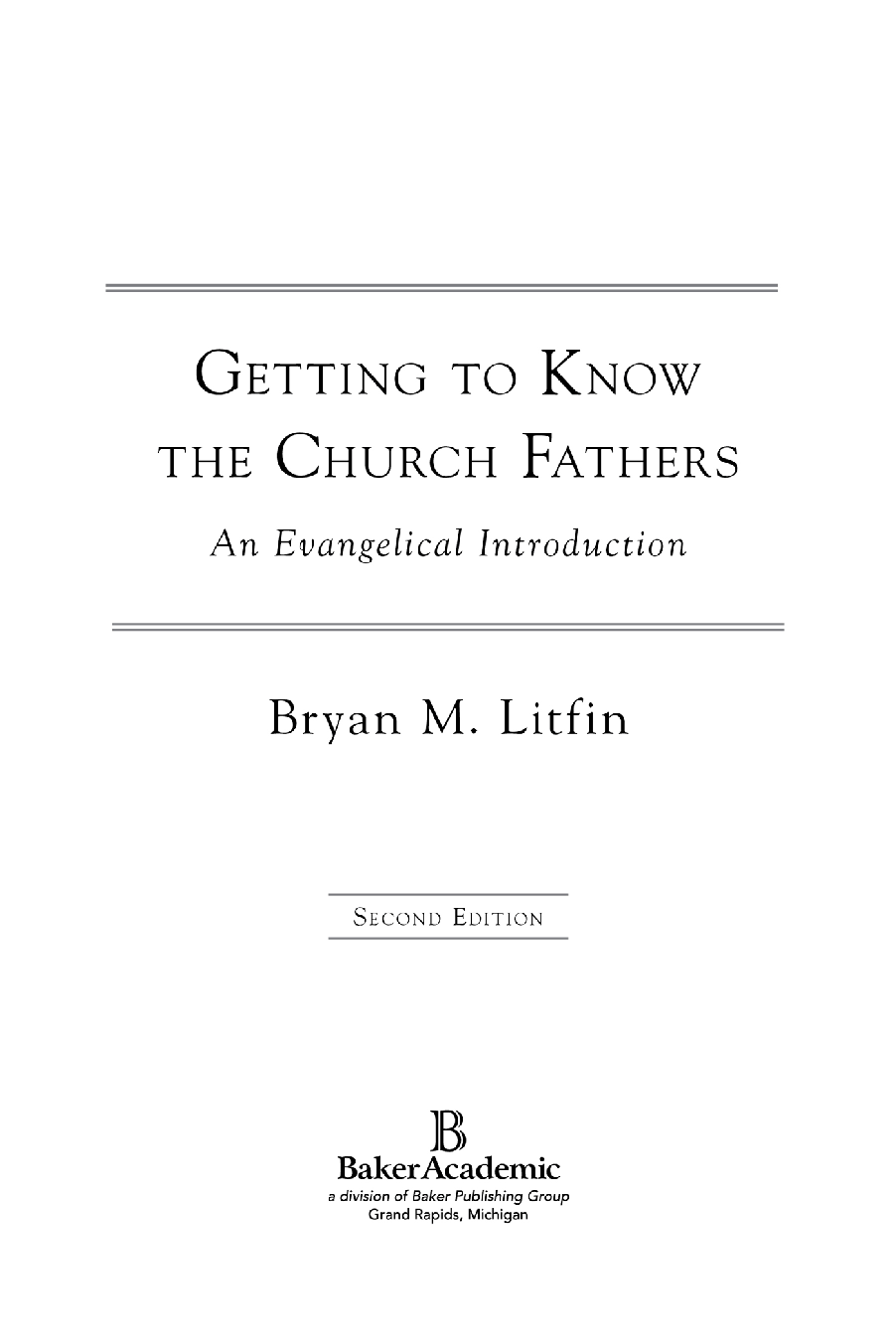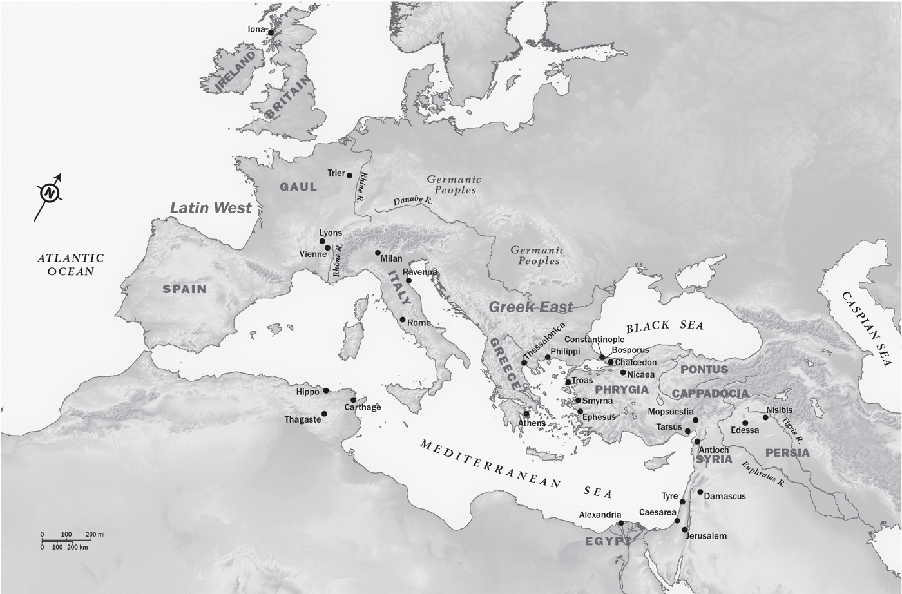2007, 2016 by Bryan M. Litfin
Published by Baker Academic
a division of Baker Publishing Group
P.O. Box 6287, Grand Rapids, MI 49516-6287
www.bakeracademic.com
Ebook edition created 2016
Ebook corrections 07.25.2017
All rights reserved. No part of this publication may be reproduced, stored in a retrieval system, or transmitted in any form or by any meansfor example, electronic, photocopy, recordingwithout the prior written permission of the publisher. The only exception is brief quotations in printed reviews.
Library of Congress Cataloging-in-Publication Data is on file at the Library of Congress, Washington, DC.
ISBN 978-1-4934-0478-0
Unless otherwise indicated, Scripture quotations are from The Holy Bible, English Standard Version (ESV), copyright 2001 by Crossway, a publishing ministry of Good News Publishers. Used by permission. All rights reserved. ESV Text Edition: 2011
Scripture quotations labeled NASB are from the New American Standard Bible, copyright 1960, 1962, 1963, 1968, 1971, 1972, 1973, 1975, 1977, 1995 by The Lockman Foundation. Used by permission. (www.Lockman.org)
All translations, including Scripture quotations, appearing in the A Taste of... sections are the authors own translation.
Contents
Cover i
Title Page ii
Copyright Page iii
Acknowledgments v
Timeline vii
Introduction 1
1. Ignatius of Antioch 21
2. Justin Martyr 41
3. Irenaeus of Lyons 61
4. Tertullian of Carthage 81
5. Perpetua of Carthage 99
6. Origen of Alexandria 119
7. Athanasius of Alexandria 141
8. Ephrem the Syrian 163
9. John Chrysostom 187
10. Augustine of Hippo 209
11. Cyril of Alexandria 231
12. Patrick of Ireland 253
Epilogue 275
Index 277
Back Cover 281
Acknowledgments
I owe an immeasurable debt to my teachers:
my father, Dr. A. Duane Litfin,
who taught me to think like a Christian;
Drs. Stephen R. Spencer and D. Jeffrey Bingham,
who taught me to think like a scholar;
and Dr. Robert Louis Wilken,
who taught me to think like a catholic.
But most of all, I am grateful for the support of my wife,
Carolyn Litfin,
whom I describe with the words Tertullian used of his own wife:
dilectissima mihi in Domino conserva.
Timeline
Church fathers indicated with italics.
Some lifespan dates are approximate.
BC
| 800 | Founding of Carthage |
| 753 | Founding of Rome |
| 658 | Founding of Byzantium |
| 347 | Death of Plato |
| 332 | Alexander the Greats conquests; founding of Alexandria |
| 322 | Death of Aristotle |
| 300 | Founding of Antioch |
| 52 | Julius Caesar conquers Gaul |
| 43 | Founding of Lugdunum (Lyons) |
| 27 | Caesar Augustus becomes the first Roman emperor |
The Birth of Christ AD
| 33 | Death and resurrection of Jesus Christ |
| 30s60s | Events of the book of Acts |
| 100165 | Life of Justin Martyr |
| 100+ | Gnostic heresy widely preached |
| 115 | Ignatius of Antioch travels to his martyrdom |
| 130202 | Life of Irenaeus of Lyons |
| 140 | Marcion begins preaching heresy in Rome |
| 156 | Polycarp of Smyrna martyred |
| 170215 | Life of Tertullian of Carthage |
| 177 | Blandina and her companions martyred at Lyons and Vienne |
| 180 | Martyrdom of the Martyrs of Scilli |
| 182203 | Life of Perpetua of Carthage |
| 185254 | Life of Origen of Alexandria |
| 203 | Perpetua, Felicity, and companions martyred; Origens father Leonides martyred |
| 250 | Emperor Decius decrees a severe persecution of Christians |
| 251356 | Life of the monk Anthony of Egypt |
| 265339 | Life of Eusebius of Caesarea |
| 300373 | Life of Athanasius of Alexandria |
| 303 | Emperor Diocletian initiates the Great Persecution |
| 306373 | Life of Ephrem the Syrian |
| 312 | Emperor Constantine victorious at the Battle of the Milvian Bridge; Donatist schism erupts in North Africa |
| 313 | Emperors Constantine and Licinius issue the Edict of Milan |
| 318 | Arius begins preaching heresy |
| 325 | Council of Nicaea defines the Trinity |
| 330 | Emperor Constantine refounds Byzantium as Constantinople |
| 337 | Death of Emperor Constantine |
| 349407 | Life of John Chrysostom |
| 350428 | Life of Theodore of Mopsuestia |
| 354430 | Life of Augustine of Hippo |
| 367 | Easter Letter of Athanasius lists the biblical canon |
| 378444 | Life of Cyril of Alexandria |
| 381 | Council of Constantinople supports the Nicene doctrine of the Trinity |
| 387 | Baptism of Augustine of Hippo |
| 390 | Death of Diodore of Tarsus |
| 402 | Pelagius begins preaching heresy |
| 410 | Alaric the Goth invades Rome |
| 428 | Nestorius becomes bishop of Constantinople |
| 431 | Council of Ephesus condemns the doctrines of Pelagius and Nestorius |
| 435460 | Approximate years of Patricks ministry in Ireland |
| 440461 | Papacy of Leo the Great |
| 451 | Council of Chalcedon defines orthodox Christology |
| 476 | Last Roman emperor in the West deposed by a barbarian lord |
| 500 | End of the Roman Empire and the Ancient Period; beginning of the Medieval Period |
Introduction
When someone asks me what I do for a living, and I say Im a professor whose academic expertise is the early church fathers, Ive become accustomed to receiving a curious expression. If the person is a stranger, I often ask if he or she is a Roman Catholic because Catholics have been exposed to the fathers of the church. But evangelical Christians often havent. Would that be someone like Jonathan Edwards? one friend asked me, referring to the colonial American theologian. Earlier than that, I replied. From the Roman Empire. Most Christians today havent met the fathers. Perhaps theyve heard of St. Augustine, but thats about it. If this is true in your case, I believe youre missing something valuable. For many readers of this book, this will be your first real encounter with the ancient Christian writers. And so you have embarked on a journey of discovery. To convey that sense of discovery to the students I teach, I use an illustration about a boy I call Billy.

